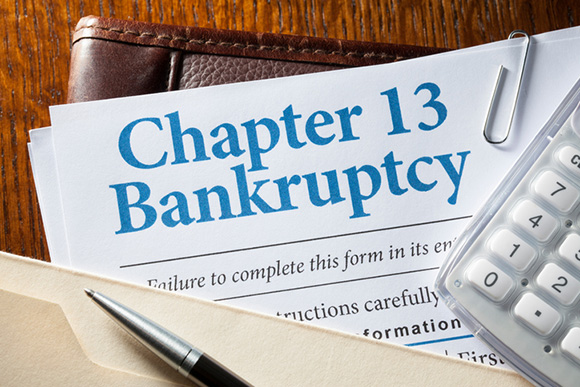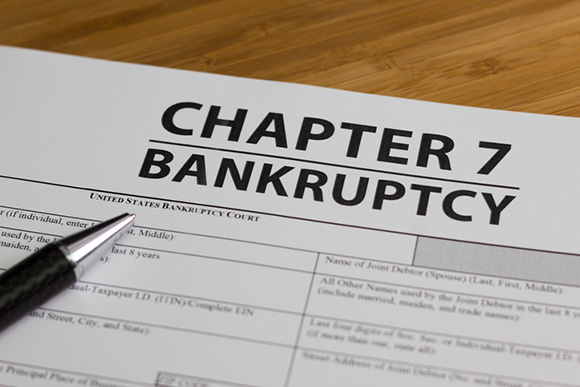You might be surprised to hear that there’s more than one way that you can file for bankruptcy. Different types of bankruptcy have different kinds of rules. The different types are divided into categories called chapters.
For individuals, you choose between filing a Chapter 7 bankruptcy and a Chapter 13 bankruptcy. After you determine what kind of bankruptcy is right for you, you will want to work with a Las Vegas bankruptcy lawyer to ensure your documents are filled out and filed correctly. Here are the questions to ask yourself when you’re trying to figure out which type of bankruptcy is right for you.
One of the most significant factors in determining what type of bankruptcy to choose is how much income you have. If you don’t have very much income but high amounts of unsecured debt, Chapter 7 is probably going to be your best option. If you have a significant amount of income, Chapter 13 might be best. In fact, if you make too much, you might have to choose a Chapter 13 instead of Chapter 7 bankruptcy.

When you file for bankruptcy, the court evaluates your income to determine what type of bankruptcy you qualify for. To file Chapter 7, you must show that there’s no hope of paying off a significant portion of your debt. But if you make too much, the court will require you to file Chapter 13 so that you can pay off at least some of your debts to deserving creditors. In addition to your income, there are limits to how much unsecured debt you can have to file Chapter 13. The general rule is that if you have more than about $400,000 in unsecured debt, you must file Chapter 7 instead of Chapter 13 Bankruptcy.
In a Chapter 13 proceeding, you make monthly payments. You don’t have to pay off all of your debts, but you must pay a reasonable amount to your creditors each month based on your income. If you can make payments and you want to make payments, Chapter 13 can be a good option.
Some guidelines can help you determine what reasonable payments would be in your situation. Even though Chapter 7 gives you a clean slate with your unsecured creditors, keep in mind that child support, alimony, and most student loans aren’t dischargeable in bankruptcy proceedings.
The different types of bankruptcies treat your home differently. Chapter 7 has a bankruptcy homestead exemption. Under Nevada law 21.090, the bankruptcy trustee can’t sell your home unless it’s worth more than $550,000. The property must be your homestead. It can include a mobile home. For most people, their home is safe from bankruptcy proceedings during a Chapter 7 bankruptcy filing.
However, a Chapter 7 filing doesn’t help you with your mortgage. If you’re behind, the mortgage company can still bring proceedings to foreclose on your home. If you owe significant amounts on your home, Chapter 7 doesn’t provide direct relief.
If you need to get caught up on mortgage payments, Chapter 13 may be more helpful. A Chapter 13 filing stays foreclosure proceedings while you get caught up on your deficit. In fact, one of the top reasons people give for wanting to file Chapter 13 is to get caught up on their home mortgage payments.
The two types of filings treat tax debt differently. In a Chapter 7 filing, you can eliminate your income tax debt as long as the debt is more than three years old. In a Chapter 13 filing, the debtor can repay the tax debt over five years. You should factor tax debt into your evaluation when you’re deciding whether you can handle the payments due in a Chapter 13 proceeding.
In a Chapter 7 proceeding, the trustee can take all of your non-exempt property and sell it. In a Chapter 13 filing, you keep all of your personal property. If you have personal property that you want to keep and its value exceeds the exemption amount, you’re going to want to use a Chapter 13 proceeding to make sure that you get to keep the things that are important to you.
One of the factors you can use to evaluate what type of bankruptcy to file is how long you want your bankruptcy process to last. The time it takes to complete a Chapter 7 filing is much faster than the time it takes to go through a Chapter 13 proceeding. In a Chapter 13 proceeding, you may be making payments for up to five years. By contrast, a Chapter 7 filing can be as fast a few months.

If you’re eager for a clean slate, Chapter 7 might be best for you. However, if you want the benefits of Chapter 13, it might be worth the wait to go through a Chapter 13 proceeding. Chapter 7 is the fastest way to complete a personal bankruptcy while there are other benefits to going through the slower Chapter 13 process.
There are limits on how often you can file for Chapter 7 bankruptcy. You can only file for Chapter 7 bankruptcy every eight years. If there’s a chance that you’re going to have financial problems in the future, eight years can be a long wait before you’re eligible to file again.
With Chapter 13 bankruptcy, you’re eligible to file every two years. And it typically takes between three and five years to complete a Chapter 13 bankruptcy. That means that by the time your original Chapter 13 filing ends, you’re usually eligible to file another Chapter 13. However, you have to complete your initial filing first. When you’re deciding what type of bankruptcy to file, you should consider how often you think you might need to file. Other time limits apply if you file one type of bankruptcy followed by a different kind of filing.
Your attorney can help you consider your personal situation to determine what type of bankruptcy is right for you in Nevada. They can look at your income, your debts, and other factors to determine how you should proceed to get a fresh start. Your bankruptcy lawyer will also ensure all of your bankruptcy paperwork is compiled successfully and in a way that will mitigate any delays.